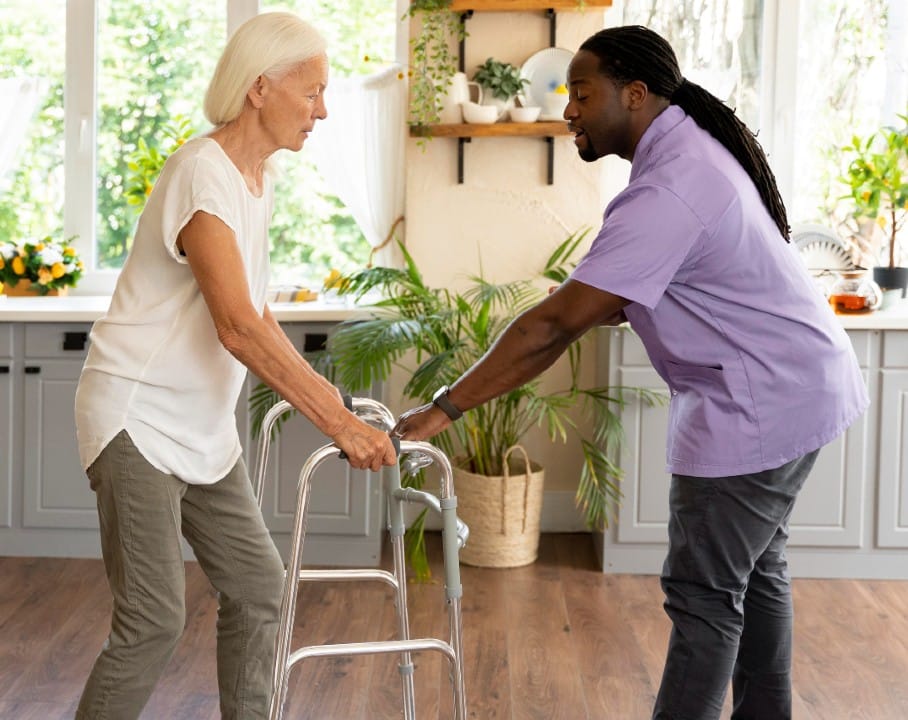It is no secret that hip problems are a major concern for older adults. In a lot of cases people do anything they can to avoid surgery, as the thought of going under the knife is terrifying to many. Most people wait until the pain and stiffness become unbearable before opting to go the Hip Replacement Surgery route.
With November being Fall Prevention Month, it’s important to be aware and conscious of preventing falls, especially as we age, in order to avoid injuries such as breaks or damage to the hips. In the event that we have incurred an injury to our hips, or wear and tear has limited our quality of life, surgery may be the only option.
The truth is, the sooner you bite the bullet and decide to have hip surgery, the easier the road to recovery will be. In fact, many seniors report immediate relief and improved mobility just days after the surgery takes place. Hundreds of thousands of people across North America have hip surgery every year and report successful recovery, improved mobility, and better quality of daily life.
What can you expect after hip surgery?
First of all, you should definitely expect to experience some pain following your hip procedure. After all, it does involve taking actual bones out of your body and replacing them with a metal and plastic hip joint. The body is bound to experience some level of trauma after a procedure like that.
In the Early Days of Surgery
It is widely reported that the first 3 days following surgery are typically the toughest, and you will likely require some dedicated assistance. Even simple things like getting in and out of bed or getting to the bathroom will be a struggle. Many people that have experienced this surgery report the third day after is one of the most painful, as surgery medications have completely worn off, and heavy inflammation sets in. Professional home caregivers can be of huge assistance during this time.
When does the recovery process start?
Immediately. You will be encouraged to get up and walk around on the same day as your surgery to facilitate the healing process. Walking is one of the best ways to reduce post-op complications, by getting the blood flowing and preventing blood clots and severe stiffness. In some cases, patients are released from the hospital on the same day of the surgery.

The Road to Rehabilitation
It is important to begin the rehabilitation process as soon as possible to facilitate healing, but it is also a good idea not to push yourself too hard. Taking it slow means less risk of excessive strain, which could land you back in the hospital again.
Starting Slow
It is recommended to exercise in 20 to 30 minute stints at first, to ease into the recovery process. It’s all about finding the right balance to keep muscle strength maintained, and preventing the new hip joint from tightening up, without straining it. At the very least, you will need to demonstrate that you are able to get out of bed and move around with a walker or a cane, before being released from the hospital. You will be given some antibiotics and medications to help prevent infection and blood clotting.
Preparing for Hospital Release
Before leaving the hospital you will also likely be given instructions on the best positions to sit and lie down to protect your new hip joint, and some simple exercises, like moving your feet up and down while flexing your leg muscles, that help keep the blood flowing and prevent stiffness. Promyse Home Care can help with support in the hospital to prepare for leaving.
What comes after hospital discharge?
Many people make a checklist of goals they would like to accomplish after surgery to help ensure they are staying on the right track. This list of goals and tasks should be kept simple at the start, and may include things like:
- Being able to get in and out of bed without assistance
- Pain is manageable and not debilitating
- You are able to move around freely with a walker, cane, or crutches
- You can go to the bathroom on your own
- You are able to eat and drink without help
- Getting started with your new recovery exercises
- You know the best practices to recover and protect your new hip joint from reinjury
Home Care Assistance
Hospital Discharge Services can be obtained from a professional home care agency to help with the transition from hospital to home. Once safely back home, in-home care services can be extremely valuable for assisting with recovery exercises and activities.
Staying on Track
The first two weeks after surgery are the most crucial, so it is recommended to not push too hard before then. After the initial two weeks are up, an effective healing approach is to start getting back into regular routines.

What else is recommended after hip surgery?
There are several other things you can do to prepare for the healing process, and depending on overall physical health, some people may need to take more precautions than others.
Some helpful suggestions for improved safety and healing, may include:
- Safeguarding the home – removing trip hazards, clearing adequate walking space, reorganizing so the things you need are easy to access
- Use a walker, crutches, or a cane until you are comfortable without them
- Bathroom fixes – install grab bars, comfort high toilet seat, and a shower chair if necessary
- Handy grabbers can be helpful to extend reach
- Talk to others that have experienced hip surgery and see if they have any tips or equipment for you that may be helpful
At Promyse, we understand that the period following surgery can be a critical phase in a senior’s journey to recovery. Our After Surgery Care services are meticulously designed to provide a comprehensive and compassionate support system, ensuring that seniors receive the care and attention they deserve during this crucial time.



